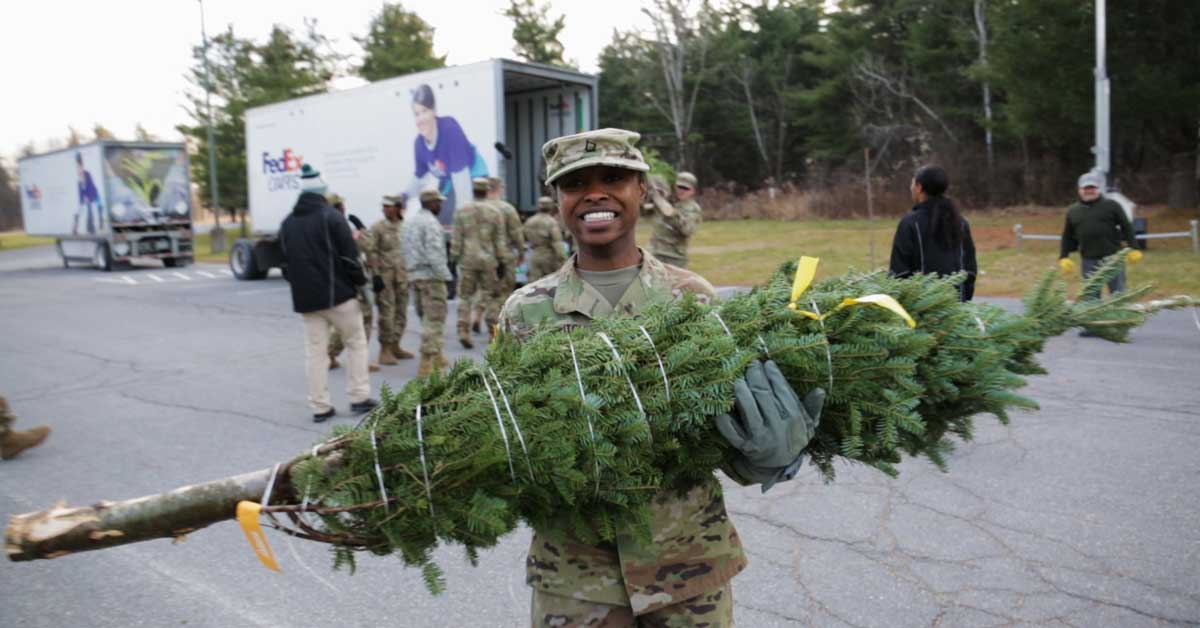This essay is an op-ed by Nate Carden. The viewpoints and opinions expressed in op-eds are those of the author and do not necessarily mirror those of Good Good Good.
When I tell people I work for a nonprofit organization that helps veterans, I usually get looks of sympathy. People respond that it’s a shame veterans who have done so much for our country are now homeless and wounded and suffer from PTSD.
I thank them for caring, and sometimes, if I can, I kindly tell them that I don’t want their sympathy.
While in the military, these veterans felt like heroes, but when they get out all too many people see them as broken even though an overwhelming portion of those leaving the military don’t struggle with homelessness or post-traumatic stress.
In fact, they are stronger, more resilient, and better leaders than when they went in.
You might also like: The best good news stories about veterans
How to greet a veteran — on Veterans Day and all year long
If we remind veterans that they are heroes who are fundamentally oriented to service and are better for what they went through in the military, we have a chance at healing the divide in our country.
I get it though. Sad stories attract viewers, readers, and funding dollars.
But it’s frustrating as a veteran to only hear stories about veteran homelessness and wounded warriors — the first things people think of when they think about veterans.
When we as a society look at veterans as help cases, we end up perpetuating the problem.
I don’t know anyone who signed up for the military so that they could get healthcare benefits, pity, or handouts.
We signed up to serve our country. Service is in our blood. And it doesn’t disappear when we leave the military.
Following World War II, almost half of the veterans went on to own or operate a business.
Fred Smith started FedEx, Phil Knight started Nike, and Bob McDonald led Procter & Gamble. These veterans were responsible for one of the greatest economic booms in history.
Fast forward, and the reality today is less than 6 percent of veterans are becoming entrepreneurs, even though 25 percent say they want to start a business.
We as a country need our veterans and military spouses to start businesses because when they do, they are more likely to be successful, hire other veterans, donate more money to their communities, and engage in civic activities including running for office.
We’re working on this at Bunker Labs and each of us have a role to play in encouraging this.

The day our society starts looking to veterans for leadership after they leave the military — not just during their service — will be the day that our nation starts to work together again.
The reality is veterans are uniquely qualified to lead our nation economically and politically.
Ask veterans to lead in business and politics, and not only will the economy get stronger and foreign policy be more thoughtful, but veterans will be better for it as well.
Instead of thanking a veteran for their service, start asking them what world-changing thing they’re doing now.
Remind them that our country needs their leadership now more than ever, and I guarantee we’ll start to see veteran homelessness, suicide, and drug use all decline.
Nate Carden attended the United States Air Force Academy and went on to receive a master’s degree from Sciences Po in Paris, France.
He served as a Captain in the Medical Service Corps at Langley Air Force Base and deployed to Afghanistan as a mentor of medical logistics to the Afghan National Army.
When Nate wrote this article, he was the national director of programs and partnerships for Bunker Labs, a national network of veteran entrepreneurs dedicated to helping new veteran entrepreneurs start their own businesses.
As of November 2023, more than 1,000 startups have completed a Bunker Labs program and have created more than 6,302 jobs and generated more than $1.79 billion in revenue.
Today, Nate is the founder of CEO Amplifier.
Five ways to support veterans in the United States
- Just as Nate Carden said, instead of simply thanking a veteran for their service, go a step further and genuinely ask a veteran what world-changing thing they’re doing right now.
- Read and share good news about veterans that go beyond the clichés. (Explore our collection of veteran good news)
- Go beyond the clichés on Veterans Day. Celebrate with these unique Veterans Day ideas.
- Donate to With Honor Action — a cross-partisan movement dedicated to promoting principled veteran leadership in elected public service for the purpose of a less polarized government working for and trusted by Americans.
- Support those who are working to serve their country after service. Buy from veteran small business owners. Campaign for veterans running for office. Vote for veterans whose platforms you align with. Donate to veterans doing good. Learn from veterans sharing their wisdom. Support veterans.
A version of this article was originally published in The Veterans Edition of the Goodnewspaper in 2019.
→ You can subscribe to become a Goodnewspaper subscriber today.




